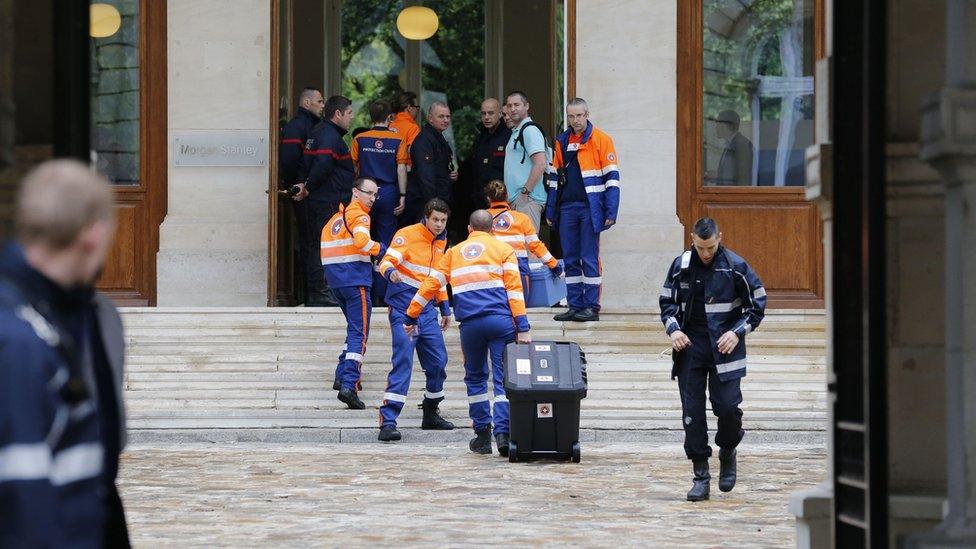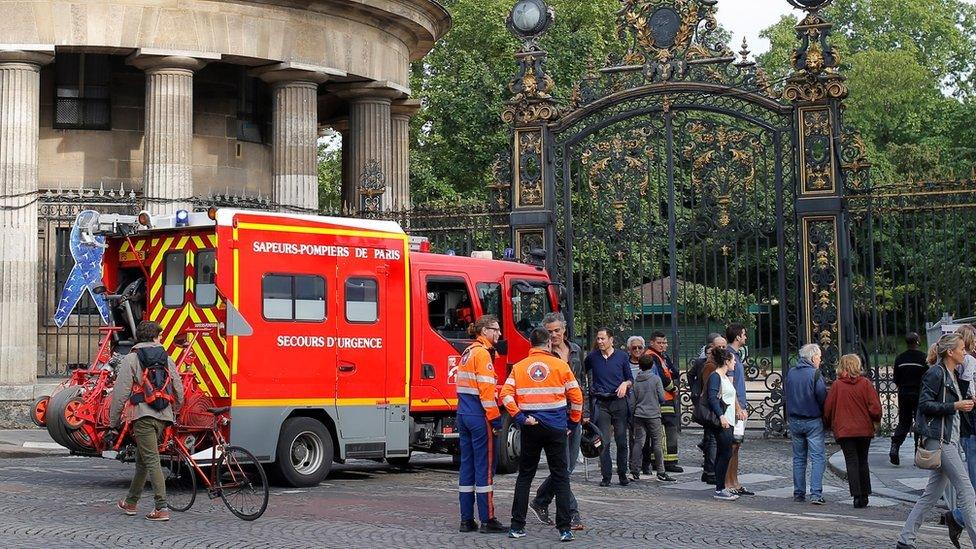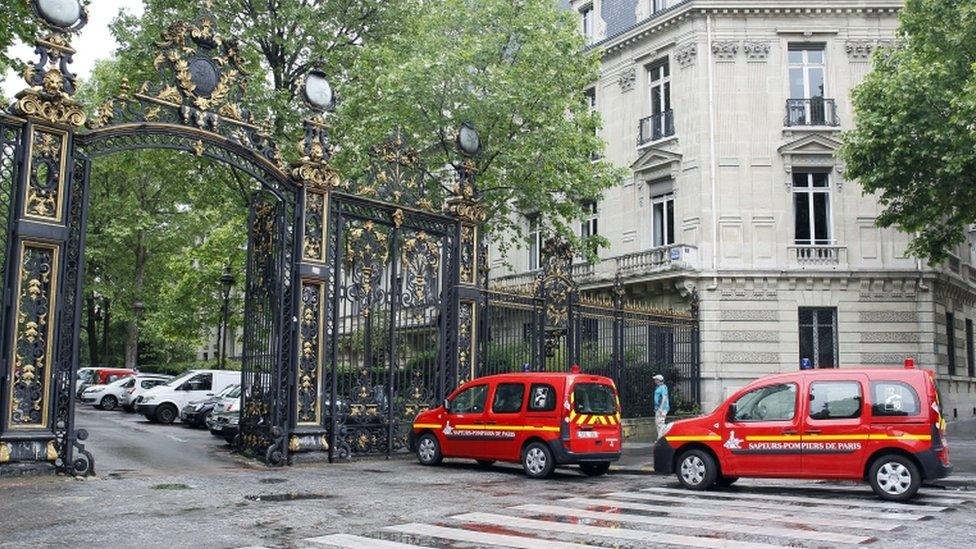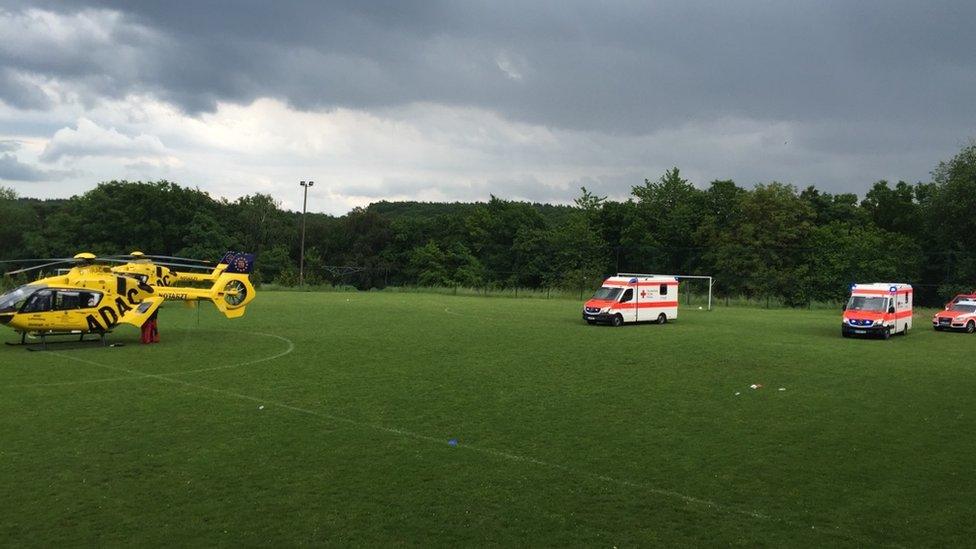Lightning strikes in Europe: One killed and many injured
- Published
Virgile Resende: "This group of people decided to group under a tree to get to safety and it was a bad choice for them"
Lightning strikes in several European countries have killed one man and caused serious injuries as summer storms hit across the Continent.
The man was killed in southern Poland as he was hit by lightning while descending a mountain.
In Paris, a birthday party in Parc Monceau was struck, injuring 11 people, eight of them children. Several are in a life-threatening condition.
Three people were seriously hurt at a youth football match in Germany.
Paris park
The children injured in Parc Monceau on Saturday afternoon were aged about nine. Six of the injured are in a serious condition.
They were struck after seeking shelter under a tree, police said.
An off-duty firefighter, Pascal Gremillot, happened to be nearby and was able to rapidly administer first aid and heart massages. Officials said the situation would have been much worse if he had not been there.

Glasses and a jacket were left behind in the Parc Monceau after the incident

A nearby building was requisitioned to treat the injured

Firefighters were called to Parc Monceau on Saturday afternoon

The Parc Monceau lies in Paris's wealthy eighth arrondissement
German football match
The referee was one of three adults at the match in Hoppstaedten in the south-west of Germany who suffered serious injuries, police in Kaiserslautern said.
He took a direct lightning hit, suffered a cardiac arrest and was taken to hospital by helicopter.
Another man was also airlifted to hospital and a third was taken by ambulance. All three injured men were in their 40s, the police added.
Initial reports said 35 people had been injured at the match - however, many were taken to hospital as a precaution.
Witnesses at the match said there were no dark clouds and the sky was blue when lightning struck just after the final whistle.

Multiple emergency services vehicles attended the aftermath of the lightning strike in south-west Germany
Torrential rain also halted play at the French Open as defending champion Serena Williams was about to start a match against Kristina Mladenovic.

Safety tips when lightning strikes
Seek shelter inside a large building or a car
Get out of wide, open spaces and exposed hilltops
If you have nowhere to shelter, make yourself as small a target as possible by crouching down with your feet together, hands on knees and head tucked in
Do not shelter beneath tall or isolated trees
If you are on water, get to the shore and off wide, open beaches as quickly as possible
Source: Rospa, external

Analysis, by Clive Mills-Hicks, Meteorologist, Met Office
The storms developed because a very warm and humid air mass covered mainland north-west Europe at the same time as the air higher up in the atmosphere was becoming colder, creating a very "unstable" atmosphere.
This instability manifested itself in the storms which developed extremely rapidly once the air had warmed up sufficiently.
Over much of the area, the temperature climbed to 25 Celsius, more than enough to trigger the storm clouds. Such storms produce intense rainfall, hail, and numerous lightning strikes and it is typical for them to be at their most widespread and intense in the early afternoon. They are not unusual over the Continent during the summer, although today's outbreaks were perhaps more widespread than normal.
Further storms are likely over Europe on Sunday: the areas expected to see the storms are southern and eastern Germany, the Czech Republic, and the western half of Poland.
In addition to the widespread nature of Saturday's storms, the fact that they came at a weekend, and during otherwise fine, warm weather, made it more likely that they would have an impact on people.